 Gush Mints - Week by Week Grow Diary & Strain Review
Gush Mints - Week by Week Grow Diary & Strain ReviewFeatured blog
Latest posts
Browse by category
Grow Guides
Grow cannabis with confidence using our complete guides. Step-by-step advice from germination to harvest by WeedSeedsExpress.
Browse all Grow Guides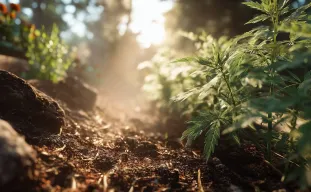 Grow GuidesHow to Apply Organic Growing Methods to Cannabis StrainsWhen you’ve been tending soil as long as I have, you learn that gardening is more than just putting a seed in the ...
Grow GuidesHow to Apply Organic Growing Methods to Cannabis StrainsWhen you’ve been tending soil as long as I have, you learn that gardening is more than just putting a seed in the ...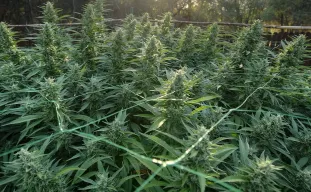 Grow GuidesHow to Support Heavy Buds OutdoorsOutside, weed plants can easily reach heights of eight feet with heavy tops on each branch - what a lovely sight.
Howeve...
Grow GuidesHow to Support Heavy Buds OutdoorsOutside, weed plants can easily reach heights of eight feet with heavy tops on each branch - what a lovely sight.
Howeve...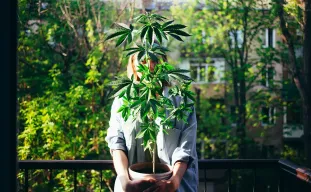 Grow GuidesGrowing Weed in an Apartment - 5 TipsIf you live in a large town or city, the chances are that you live in an apartment or flat. If you fancy doing a bit of ...
Grow GuidesGrowing Weed in an Apartment - 5 TipsIf you live in a large town or city, the chances are that you live in an apartment or flat. If you fancy doing a bit of ... Grow GuidesHow Much Water for 5 Gallon (20L) Autoflower? A Practical Guide for GrowersI've spent years perfecting my indoor grow setup, and nothing beats the satisfaction of harvesting potent buds from my o...
Grow GuidesHow Much Water for 5 Gallon (20L) Autoflower? A Practical Guide for GrowersI've spent years perfecting my indoor grow setup, and nothing beats the satisfaction of harvesting potent buds from my o...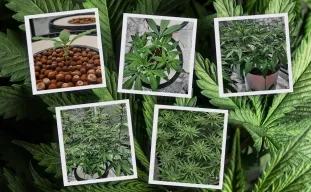 Grow GuidesAutoflower Life Cycle With Week by Week PicturesOnce you’ve got into the swing of growing autoflowering cannabis, you’ll find it a fun and therapeutic proce...
Grow GuidesAutoflower Life Cycle With Week by Week PicturesOnce you’ve got into the swing of growing autoflowering cannabis, you’ll find it a fun and therapeutic proce...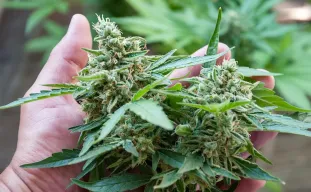 Grow GuidesDense Nugs Guide: How to grow dense Buds?Growing your own cannabis plants is not a difficult task, and even first-time growers can achieve a successful yield. Ye...
Grow GuidesDense Nugs Guide: How to grow dense Buds?Growing your own cannabis plants is not a difficult task, and even first-time growers can achieve a successful yield. Ye...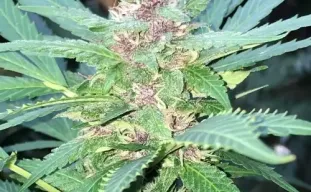 Grow GuidesCultivating Autoflowers in Extremely Small SpacesAre you passionate about growing cannabis, but your living space is tiny? Do you want homegrown buds, but bulky equipmen...
Grow GuidesCultivating Autoflowers in Extremely Small SpacesAre you passionate about growing cannabis, but your living space is tiny? Do you want homegrown buds, but bulky equipmen...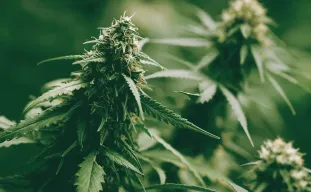 Grow GuidesHow to grow weed fast?Growing cannabis is a time-consuming process, and most growers are keen to get to the curing stage as quickly as possibl...
Grow GuidesHow to grow weed fast?Growing cannabis is a time-consuming process, and most growers are keen to get to the curing stage as quickly as possibl...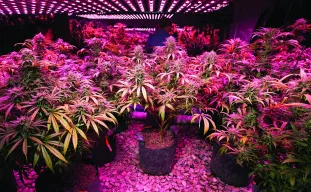 Grow GuidesCannabis Micro Grow: Growing a Small Weed PlantMany people are taking up growing their own cannabis plants indoors these days. However, not everyone has the space to g...
Grow GuidesCannabis Micro Grow: Growing a Small Weed PlantMany people are taking up growing their own cannabis plants indoors these days. However, not everyone has the space to g...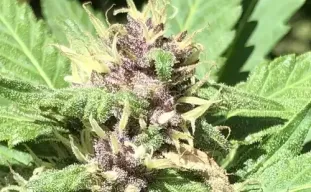 Grow GuidesAdvanced Autoflower Cultivation Methods for Elite GrowersAutoflowers. These remarkable cannabis plants flower based on their age, making them perfect for beginner growers. Let's...
Grow GuidesAdvanced Autoflower Cultivation Methods for Elite GrowersAutoflowers. These remarkable cannabis plants flower based on their age, making them perfect for beginner growers. Let's...Grow Diaries
Our customer grow journals provide an inside look at our cannabis seeds' journey from germination to harvest.
Browse all Grow Diaries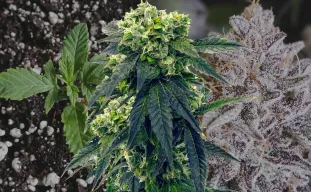 Grow DiariesGush Mints - Week by Week Grow Diary & Strain ReviewThis Gush Mints run doesn’t read like a highlight reel, and that’s the compliment. SkunkyDog420 set up a sma...
Grow DiariesGush Mints - Week by Week Grow Diary & Strain ReviewThis Gush Mints run doesn’t read like a highlight reel, and that’s the compliment. SkunkyDog420 set up a sma...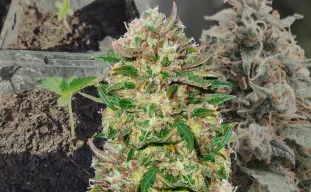 Grow Diaries24k Gold - Week by Week Grow Diary & Strain ReviewThis wasn’t a flashy grow, and that’s exactly why it worked. 24K Gold doesn’t reward heavy hands ...
Grow Diaries24k Gold - Week by Week Grow Diary & Strain ReviewThis wasn’t a flashy grow, and that’s exactly why it worked. 24K Gold doesn’t reward heavy hands ...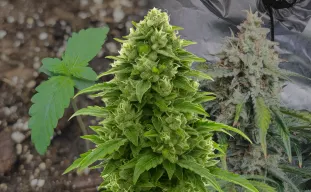 Grow DiariesBruce Banner Auto - Week by Week Grow Diary & Strain ReviewSome autoflowers tiptoe through their cycle. These two Bruce Banner Autos walked in like they owned the tent. The plan w...
Grow DiariesBruce Banner Auto - Week by Week Grow Diary & Strain ReviewSome autoflowers tiptoe through their cycle. These two Bruce Banner Autos walked in like they owned the tent. The plan w...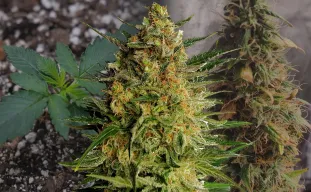 Grow DiariesAK47 Auto - Week by Week Grow Diary & Strain ReviewLeafy_greenz chose the classic AK-47 Auto for their first indoor grow, and the strain immediately revealed why it is so ...
Grow DiariesAK47 Auto - Week by Week Grow Diary & Strain ReviewLeafy_greenz chose the classic AK-47 Auto for their first indoor grow, and the strain immediately revealed why it is so ...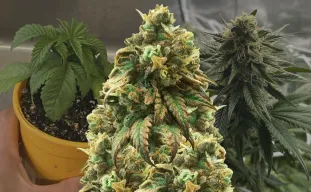 Grow DiariesGreen Crack - Week by Week Grow Diary & Strain ReviewGreen Crack doesn’t waste time, and neither did this run. Stone2345 set out to tame this legendary daytime strain ...
Grow DiariesGreen Crack - Week by Week Grow Diary & Strain ReviewGreen Crack doesn’t waste time, and neither did this run. Stone2345 set out to tame this legendary daytime strain ...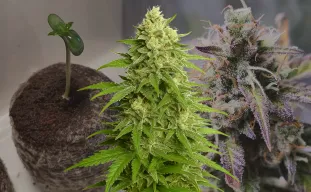 Grow DiariesHaze Auto - Week by Week Grow Diary & Strain ReviewCannabeast40 grew Haze Autoflower indoors for this run. The plant had a vibrant sativa structure and a little longer aut...
Grow DiariesHaze Auto - Week by Week Grow Diary & Strain ReviewCannabeast40 grew Haze Autoflower indoors for this run. The plant had a vibrant sativa structure and a little longer aut...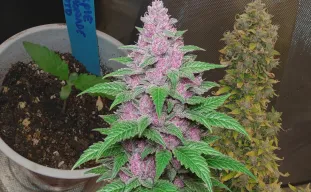 Grow DiariesPurple Lemonade Auto - Week by Week Grow Diary & Strain ReviewSome autoflowers slap you with attitude the moment they break soil. This one didn’t.
This Purple Lemonade Aut...
Grow DiariesPurple Lemonade Auto - Week by Week Grow Diary & Strain ReviewSome autoflowers slap you with attitude the moment they break soil. This one didn’t.
This Purple Lemonade Aut... Grow DiariesSuper Boof - Week by Week Grow Diary & Strain ReviewTHChunter23 took a Superboof feminized clone through an eleven-week indoor run that proves how easygoing this strain can...
Grow DiariesSuper Boof - Week by Week Grow Diary & Strain ReviewTHChunter23 took a Superboof feminized clone through an eleven-week indoor run that proves how easygoing this strain can...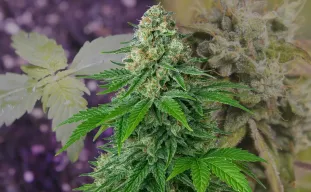 Grow DiariesWhite Widow Auto - Week by Week Grow Diary & Strain ReviewSome grows come in loud, others slip quietly into the tent and surprise you with grit.
This White Widow Autoflower did t...
Grow DiariesWhite Widow Auto - Week by Week Grow Diary & Strain ReviewSome grows come in loud, others slip quietly into the tent and surprise you with grit.
This White Widow Autoflower did t...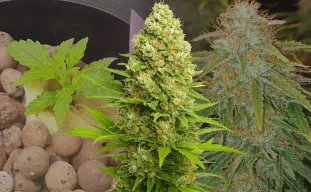 Grow DiariesBanana Kush Auto - Week by Week Grow Diary & Strain ReviewRoberts put an Auto Banana Kush seed into play with the kind of determination that only a grower who has been scared a f...
Grow DiariesBanana Kush Auto - Week by Week Grow Diary & Strain ReviewRoberts put an Auto Banana Kush seed into play with the kind of determination that only a grower who has been scared a f...Grow Tips
Our grow tips gives readers quick, easy-to-follow advice, aimed at helping both beginner and experienced growers with a successful grow.
Browse all Grow Tips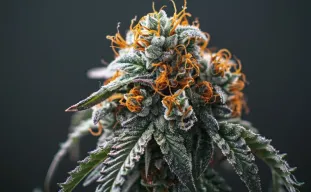 Grow TipsHow to Increase THC Levels: A Guide to Maximizing PotencyIf you've ever wondered how to increase THC levels in weed without chasing gimmicks, we're right there with you. Potency...
Grow TipsHow to Increase THC Levels: A Guide to Maximizing PotencyIf you've ever wondered how to increase THC levels in weed without chasing gimmicks, we're right there with you. Potency...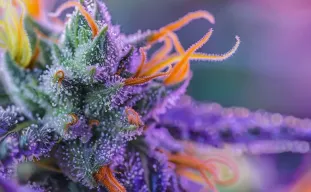 Grow Tips5 Proven Ways to Improve Resin Production in AutoflowersI’ve seen it happen countless times: a grower pours months of work into their autoflowers, only to end up with bud...
Grow Tips5 Proven Ways to Improve Resin Production in AutoflowersI’ve seen it happen countless times: a grower pours months of work into their autoflowers, only to end up with bud...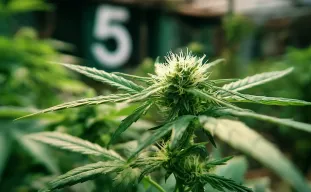 Grow Tips5 Key Tips for Transitioning Photoperiod Cannabis Plants from Veg to FlowerEvery grower remembers their first flip. That moment when you decide your plants are ready to leave the comfort of long ...
Grow Tips5 Key Tips for Transitioning Photoperiod Cannabis Plants from Veg to FlowerEvery grower remembers their first flip. That moment when you decide your plants are ready to leave the comfort of long ...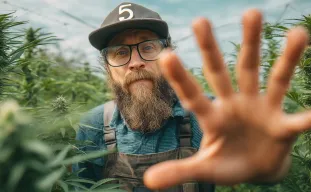 Grow Tips5 Expert Tips to Maximize CBD Levels in Your Cannabis PlantsI’ve seen plenty of growers scratch their heads wondering why their CBD-rich strains didn’t hit the levels p...
Grow Tips5 Expert Tips to Maximize CBD Levels in Your Cannabis PlantsI’ve seen plenty of growers scratch their heads wondering why their CBD-rich strains didn’t hit the levels p...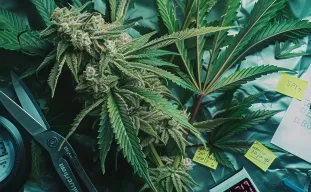 Grow Tips6 Proven Tips to Shorten the Flowering Time of Your Cannabis PlantsLet’s be honest, most home growers want one thing: sticky jars of bud sooner, not later. But cannabis is a patient...
Grow Tips6 Proven Tips to Shorten the Flowering Time of Your Cannabis PlantsLet’s be honest, most home growers want one thing: sticky jars of bud sooner, not later. But cannabis is a patient... Grow Tips5 Crucial Tips for Successfully Cultivating Landrace Cannabis StrainsCrack open a jar of Durban Poison and you’re not just smelling weed, you’re inhaling history. Landrace canna...
Grow Tips5 Crucial Tips for Successfully Cultivating Landrace Cannabis StrainsCrack open a jar of Durban Poison and you’re not just smelling weed, you’re inhaling history. Landrace canna...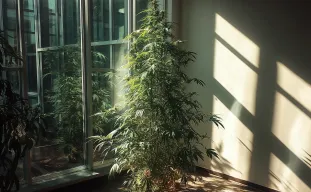 Grow Tips6 Expert Tips for Controlling Height When Growing Sativa Cannabis IndoorsWe've all been there: you get those Sativa seeds or clones and can't wait to start a new indoor grow, but then you see y...
Grow Tips6 Expert Tips for Controlling Height When Growing Sativa Cannabis IndoorsWe've all been there: you get those Sativa seeds or clones and can't wait to start a new indoor grow, but then you see y...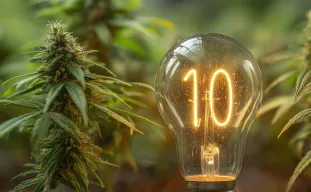 Grow Tips10 Tips for Maximum Yields from Your Cannabis PlantsIt's not as easy as throwing seeds into the ground and hoping for the best when you grow cannabis. I've learned the hard...
Grow Tips10 Tips for Maximum Yields from Your Cannabis PlantsIt's not as easy as throwing seeds into the ground and hoping for the best when you grow cannabis. I've learned the hard...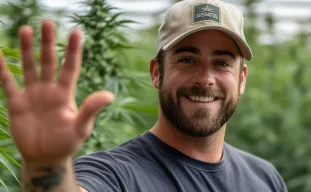 Grow Tips5 Secrets for Accelerating Autoflower Growth and Boost Harvest TimeIf you're reading this, I'm guessing you've had enough of waiting around for your autoflowers to hurry up and get their ...
Grow Tips5 Secrets for Accelerating Autoflower Growth and Boost Harvest TimeIf you're reading this, I'm guessing you've had enough of waiting around for your autoflowers to hurry up and get their ...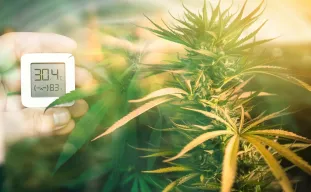 Grow TipsOptimizing Temperature and Humidity for Feminized Cannabis GrowthOptimizing temperature and humidity for feminized cannabis seeds isn’t just a casual suggestion, it's bloody manda...
Grow TipsOptimizing Temperature and Humidity for Feminized Cannabis GrowthOptimizing temperature and humidity for feminized cannabis seeds isn’t just a casual suggestion, it's bloody manda...Top Lists
Explore top cannabis strains, tools, and techniques with curated top lists from WeedSeedsExpress. Make informed decisions for your grow.
Browse all Top Lists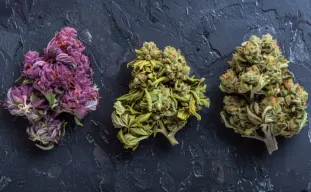 Top ListsTop 10 Best Strains for 2026: An Expert Grower's GuideWe rolled up our sleeves, fired up the tents, and spent the last year hunting for the best weed strains 2026 has to offe...
Top ListsTop 10 Best Strains for 2026: An Expert Grower's GuideWe rolled up our sleeves, fired up the tents, and spent the last year hunting for the best weed strains 2026 has to offe...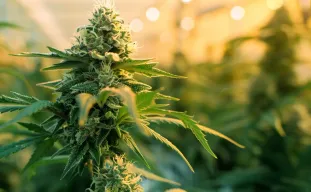 Top ListsTop 5 Fast-Flowering Cannabis Strains Perfect for Multiple Harvests Per YearIf you have ever watched your plants crawl through a long twelve-week bloom and thought, “There must be a fas...
Top ListsTop 5 Fast-Flowering Cannabis Strains Perfect for Multiple Harvests Per YearIf you have ever watched your plants crawl through a long twelve-week bloom and thought, “There must be a fas...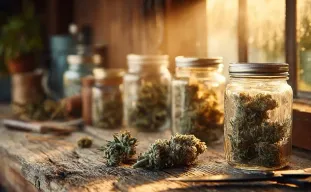 Top Lists7 Fastest Feminized Cannabis Strains for Quick HarvestsNot everyone has time for a flower cycle that lasts 10 weeks. You might be racing the fall rains, rotating your never-en...
Top Lists7 Fastest Feminized Cannabis Strains for Quick HarvestsNot everyone has time for a flower cycle that lasts 10 weeks. You might be racing the fall rains, rotating your never-en...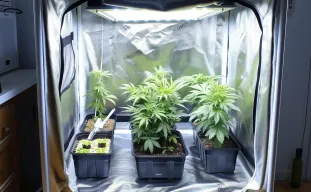 Top ListsTop 7 Easiest Photoperiod Cannabis Strains for Beginner GrowersAutoflowers often steal the spotlight for simplicity, but don’t sleep on photoperiod strains. With a little attent...
Top ListsTop 7 Easiest Photoperiod Cannabis Strains for Beginner GrowersAutoflowers often steal the spotlight for simplicity, but don’t sleep on photoperiod strains. With a little attent...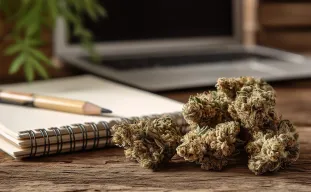 Top ListsTop 8 Energizing Sativa Strains Perfect for Daytime Use and CreativityWhen you’re reaching for cannabis to brighten your morning or spark an afternoon of creativity, not every jar in t...
Top ListsTop 8 Energizing Sativa Strains Perfect for Daytime Use and CreativityWhen you’re reaching for cannabis to brighten your morning or spark an afternoon of creativity, not every jar in t...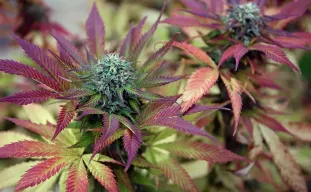 Top ListsTop 10 Most Beautiful Weed StrainsCannabis isn’t just about potency anymore, it’s about beauty, too. Modern breeders have turned marijuana int...
Top ListsTop 10 Most Beautiful Weed StrainsCannabis isn’t just about potency anymore, it’s about beauty, too. Modern breeders have turned marijuana int...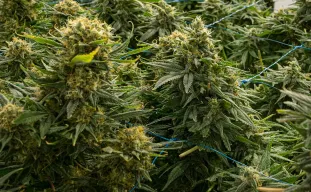 Top Lists15 Highest Yielding Cannabis Strains Ever 🏆Editor’s note: This article is an updated version of our 2021 roundup of highest-yielding strains. Back then, Bubb...
Top Lists15 Highest Yielding Cannabis Strains Ever 🏆Editor’s note: This article is an updated version of our 2021 roundup of highest-yielding strains. Back then, Bubb...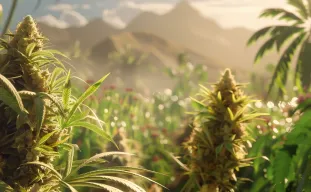 Top ListsTop 7 Landrace Cannabis Strains Every Grower Should CultivateHybrids are the most common type of cannabis on the market today. Breeders are always looking for the next THC strain th...
Top ListsTop 7 Landrace Cannabis Strains Every Grower Should CultivateHybrids are the most common type of cannabis on the market today. Breeders are always looking for the next THC strain th...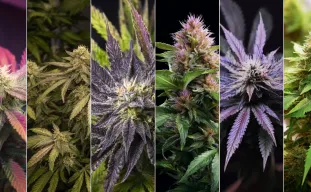 Top ListsTop 6 Most Relaxing Indica Strains for Sleep and Stress ReliefLife's constant hustle can make it hard to fall asleep at night. We toss and turn in bed, trying to get to sleep but bei...
Top ListsTop 6 Most Relaxing Indica Strains for Sleep and Stress ReliefLife's constant hustle can make it hard to fall asleep at night. We toss and turn in bed, trying to get to sleep but bei...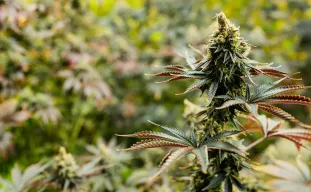 Top Lists10 Strongest Autoflower Strains With Up to 37% THC 🤯Autoflowering cannabis strains have changed a lot over the past ten years. They went from being low-THC novelties to pow...
Top Lists10 Strongest Autoflower Strains With Up to 37% THC 🤯Autoflowering cannabis strains have changed a lot over the past ten years. They went from being low-THC novelties to pow...Informational
Dive into the world of cannabis with informational blogs on its history, uses, science, and industry trends at WeedSeedsExpress.
Browse all Informational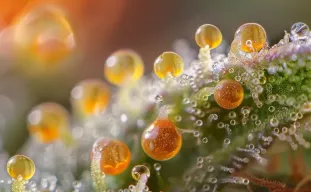 InformationalThe Science of Strong Weed: 7 Proven Factors Affecting Cannabis PotencyYou can nail the basics and still end up with mid if one piece of the potency puzzle is off. We've all been there, stick...
InformationalThe Science of Strong Weed: 7 Proven Factors Affecting Cannabis PotencyYou can nail the basics and still end up with mid if one piece of the potency puzzle is off. We've all been there, stick...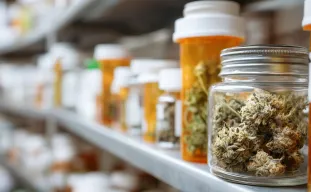 InformationalMedical Cannabis today - Science, Safety, and the End of StigmaIn the last two decades, the medical cannabis story has shifted from controversy to credibility.
Once confined to the fr...
InformationalMedical Cannabis today - Science, Safety, and the End of StigmaIn the last two decades, the medical cannabis story has shifted from controversy to credibility.
Once confined to the fr...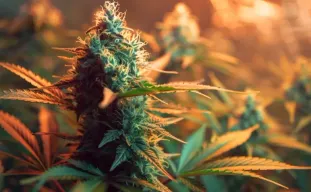 InformationalHow Autoflower Cannabis Plants Flower Without Light CyclesEvery grower remembers the first time they heard about autoflowers, which are plants that bloom on their own schedule wi...
InformationalHow Autoflower Cannabis Plants Flower Without Light CyclesEvery grower remembers the first time they heard about autoflowers, which are plants that bloom on their own schedule wi...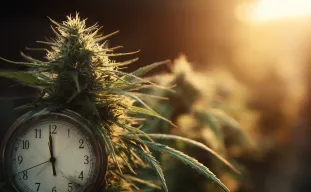 InformationalIs 12 Hours of Darkness Really the Best Way to Trigger Flowering in Cannabis?Every indoor grower has heard it a thousand times: flip to 12/12 to flower for photoperiod strains. But what if tha...
InformationalIs 12 Hours of Darkness Really the Best Way to Trigger Flowering in Cannabis?Every indoor grower has heard it a thousand times: flip to 12/12 to flower for photoperiod strains. But what if tha... InformationalCannabis Seeds Deals Black Friday 2025Every November, the cannabis community gets ready for Black Friday, which has become a holiday for growers all over the ...
InformationalCannabis Seeds Deals Black Friday 2025Every November, the cannabis community gets ready for Black Friday, which has become a holiday for growers all over the ...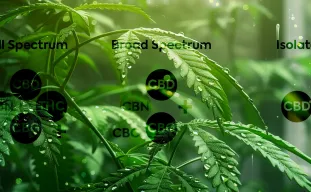 InformationalFull-Spectrum, Broad-Spectrum, and CBD Isolate: What's Best to Grow at Home?If you want to grow cannabis at home that has a lot of CBD, you've probably heard of the terms full-spectrum, broad...
InformationalFull-Spectrum, Broad-Spectrum, and CBD Isolate: What's Best to Grow at Home?If you want to grow cannabis at home that has a lot of CBD, you've probably heard of the terms full-spectrum, broad...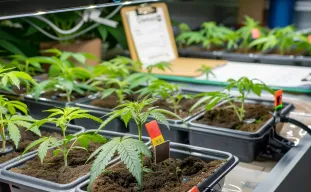 InformationalStudy: How Nitrogen Rates Shape CBD Cannabis YieldsHere’s another fresh study that growers will appreciate. Published in Scientific Reports (2025), Dilena and c...
InformationalStudy: How Nitrogen Rates Shape CBD Cannabis YieldsHere’s another fresh study that growers will appreciate. Published in Scientific Reports (2025), Dilena and c...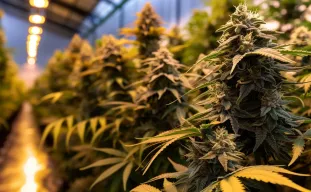 InformationalPhotoperiod Cannabis Seeds Explained: How Light Cycles Control Your HarvestIf you've ever wondered why your cannabis plants suddenly go from growing leaves to dense, resin-filled buds, it's becau...
InformationalPhotoperiod Cannabis Seeds Explained: How Light Cycles Control Your HarvestIf you've ever wondered why your cannabis plants suddenly go from growing leaves to dense, resin-filled buds, it's becau...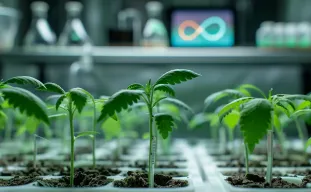 InformationalStudy: What Growers Can Do With New Autoflower Gene-Dosage ResearchWe’ve got another interesting study for cultivators. In 2023, researchers at the University of Connecticut tested ...
InformationalStudy: What Growers Can Do With New Autoflower Gene-Dosage ResearchWe’ve got another interesting study for cultivators. In 2023, researchers at the University of Connecticut tested ...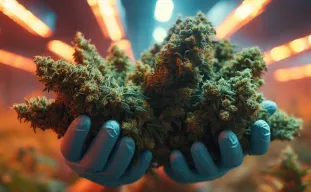 InformationalWhat Determines Cannabis Yield? Factors Every Grower Should KnowYield is king. Whether you’re growing for yourself, your crew, or for the shelves of a dispensary, the number one ...
InformationalWhat Determines Cannabis Yield? Factors Every Grower Should KnowYield is king. Whether you’re growing for yourself, your crew, or for the shelves of a dispensary, the number one ...Local Guides
Grow cannabis like a pro with our local guides. Region-specific tips, climate advice, and legal insights from WeedSeedsExpress.
Browse all Local Guides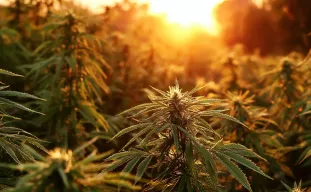 Local GuidesBest Photoperiod Cannabis Strains for Short Growing SeasonsIf your outdoor season feels like a sprint , late frosts in spring, early frosts in fall , you’re not alone. Up he...
Local GuidesBest Photoperiod Cannabis Strains for Short Growing SeasonsIf your outdoor season feels like a sprint , late frosts in spring, early frosts in fall , you’re not alone. Up he...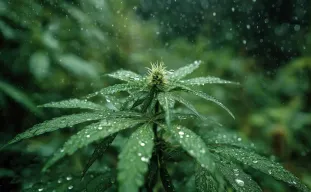 Local GuidesBest CBD Cannabis Strains for Growing in Humid ClimatesIf you’ve ever tried to grow cannabis in a sticky, humid climate, you know it’s not for the faint of heart. ...
Local GuidesBest CBD Cannabis Strains for Growing in Humid ClimatesIf you’ve ever tried to grow cannabis in a sticky, humid climate, you know it’s not for the faint of heart. ...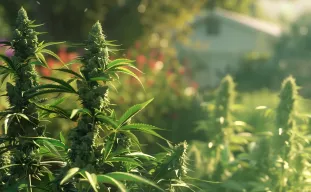 Local GuidesFastest Cannabis Strains for Short Outdoor SeasonsWhen you’ve been tending gardens as long as I have, whether it’s basil, beans, or Blueberry, you start to se...
Local GuidesFastest Cannabis Strains for Short Outdoor SeasonsWhen you’ve been tending gardens as long as I have, whether it’s basil, beans, or Blueberry, you start to se...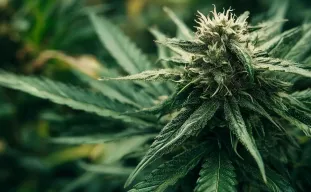 Local GuidesBest Indica Cannabis Strains for Growing Outdoors in Cooler Northern ClimatesIf you live in the northern hemisphere, especially in cooler places with shorter summers and harsher weather, growing ca...
Local GuidesBest Indica Cannabis Strains for Growing Outdoors in Cooler Northern ClimatesIf you live in the northern hemisphere, especially in cooler places with shorter summers and harsher weather, growing ca...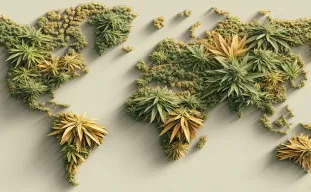 Local GuidesBest Landrace Cannabis Strains for Growing in Tropical ClimatesForget hybrids and fancy crosses. In the steamy, sun-drenched equator belt, nothing performs like a true landrace strain...
Local GuidesBest Landrace Cannabis Strains for Growing in Tropical ClimatesForget hybrids and fancy crosses. In the steamy, sun-drenched equator belt, nothing performs like a true landrace strain...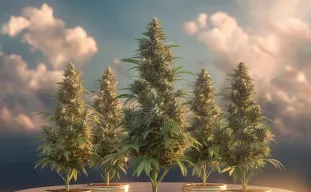 Local GuidesBest Autoflower Cannabis Strains to Grow in Short, Cool SummerSummer isn't always endless sunshine and tropical heat, especially if you're growing cannabis in places like Maine, the ...
Local GuidesBest Autoflower Cannabis Strains to Grow in Short, Cool SummerSummer isn't always endless sunshine and tropical heat, especially if you're growing cannabis in places like Maine, the ...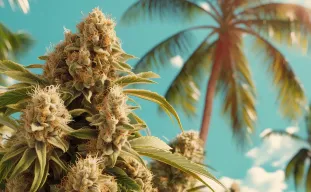 Local GuidesBest Feminized Strains for Outdoor Growing in Hot and Humid Tropical ClimatesGrowing cannabis outdoors is easy enough in the dreamy climates of California or Spain, but what about the rest of us? E...
Local GuidesBest Feminized Strains for Outdoor Growing in Hot and Humid Tropical ClimatesGrowing cannabis outdoors is easy enough in the dreamy climates of California or Spain, but what about the rest of us? E...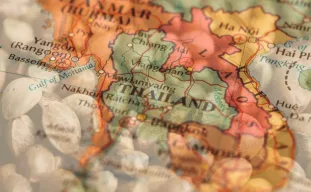 Local Guides10 Best Cannabis Strains To Grow in Thailand 🇹🇭Thailand boasts a tropical climate that many cannabis growers can only dream of. Its distinct wet and dry seasons, ...
Local Guides10 Best Cannabis Strains To Grow in Thailand 🇹🇭Thailand boasts a tropical climate that many cannabis growers can only dream of. Its distinct wet and dry seasons, ...Basics For Beginners
Start your cannabis journey with beginner-friendly tips and essential knowledge. Learn the basics at WeedSeedsExpress.
Browse all Basics For Beginners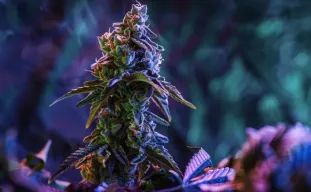 Basics For BeginnersChoosing High THC Seeds for Beginners: What You Need to ConsiderWhen you are just getting started with cannabis, it is easy to get caught up in the numbers. You see “30% THC&rdqu...
Basics For BeginnersChoosing High THC Seeds for Beginners: What You Need to ConsiderWhen you are just getting started with cannabis, it is easy to get caught up in the numbers. You see “30% THC&rdqu...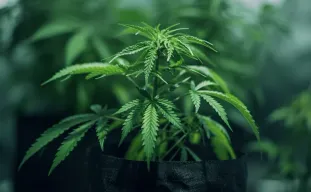 Basics For BeginnersHow to Spot and Avoid Stress in Your First Autoflower GrowEvery grower hits that moment of panic in their first autoflower run. The plants are smaller than expected, the leaves s...
Basics For BeginnersHow to Spot and Avoid Stress in Your First Autoflower GrowEvery grower hits that moment of panic in their first autoflower run. The plants are smaller than expected, the leaves s...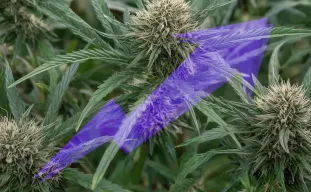 Basics For BeginnersHow Beginners Can Easily Boost Cannabis YieldTaking care of a cannabis plant from seed to harvest is undeniably magical. You water, trim, and wait, hoping that your ...
Basics For BeginnersHow Beginners Can Easily Boost Cannabis YieldTaking care of a cannabis plant from seed to harvest is undeniably magical. You water, trim, and wait, hoping that your ...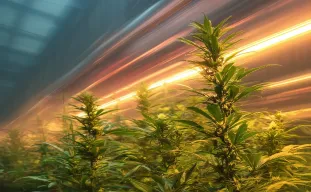 Basics For BeginnersBeginners' Guide to Growing Fast-Flowering Cannabis StrainsYou've decided to try growing cannabis, but you don't have a lot of patience. Or maybe you can only grow plants outside ...
Basics For BeginnersBeginners' Guide to Growing Fast-Flowering Cannabis StrainsYou've decided to try growing cannabis, but you don't have a lot of patience. Or maybe you can only grow plants outside ...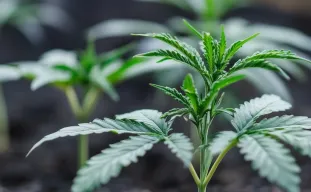 Basics For BeginnersHow to Pick the Best Feminized Seeds for Your First GrowAs home cultivation becomes more accessible under evolving cannabis laws, selecting the right feminized seeds is one of ...
Basics For BeginnersHow to Pick the Best Feminized Seeds for Your First GrowAs home cultivation becomes more accessible under evolving cannabis laws, selecting the right feminized seeds is one of ...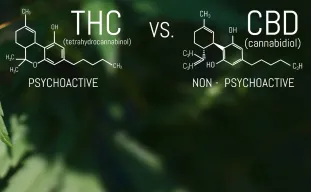 Basics For BeginnersCBD vs THC - Differences ExplainedWhen looking at the specifications of cannabis seeds in our catalog, you may often notice references to high or low leve...
Basics For BeginnersCBD vs THC - Differences ExplainedWhen looking at the specifications of cannabis seeds in our catalog, you may often notice references to high or low leve...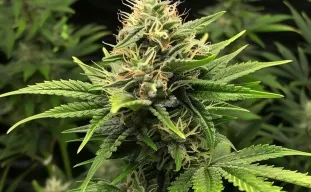 Basics For BeginnersThe Ultimate Autoflower Cannabis Seeds FAQ: Everything You Need to KnowIntroduction
Autoflowering cannabis seeds have become extremely popular among growers due to their ease of cultivation, ...
Basics For BeginnersThe Ultimate Autoflower Cannabis Seeds FAQ: Everything You Need to KnowIntroduction
Autoflowering cannabis seeds have become extremely popular among growers due to their ease of cultivation, ...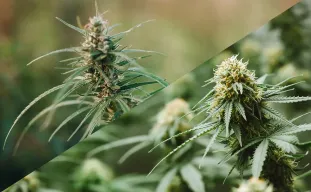 Basics For BeginnersIndica vs Sativa (10 Key Differences For Beginners)Indica and sativa are two of the main types of cannabis, and each offers different effects and uses.
This article will b...
Basics For BeginnersIndica vs Sativa (10 Key Differences For Beginners)Indica and sativa are two of the main types of cannabis, and each offers different effects and uses.
This article will b...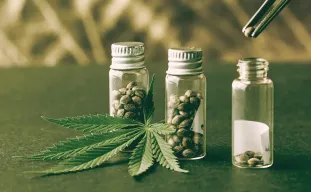 Basics For BeginnersStoring Cannabis Seeds Guide: How To Store Weed Seeds?All great cannabis plants begin with quality seeds. Unfortunately, many growers overlook the simple fact that weed seeds...
Basics For BeginnersStoring Cannabis Seeds Guide: How To Store Weed Seeds?All great cannabis plants begin with quality seeds. Unfortunately, many growers overlook the simple fact that weed seeds...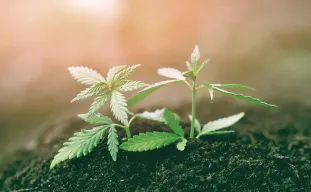 Basics For BeginnersHow to Plant Weed Seeds After Gemination?You have finished germinating your marijuana seeds, and it is now time to begin planting them. Planting cannabis seeds i...
Basics For BeginnersHow to Plant Weed Seeds After Gemination?You have finished germinating your marijuana seeds, and it is now time to begin planting them. Planting cannabis seeds i...Grow Techniques
Master cannabis cultivation with advanced grow techniques. Tips and methods to boost yields and improve plant health at WeedSeedsExpress.
Browse all Grow Techniques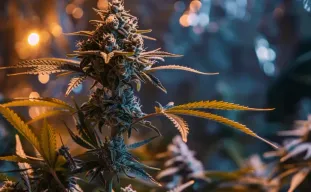 Grow TechniquesHow to Maximize THC: An Advanced Grower's Guide to Training & PotencyWe've all seen two plants grown side by side under the same light: one frosty like it rolled in powdered sugar, the othe...
Grow TechniquesHow to Maximize THC: An Advanced Grower's Guide to Training & PotencyWe've all seen two plants grown side by side under the same light: one frosty like it rolled in powdered sugar, the othe...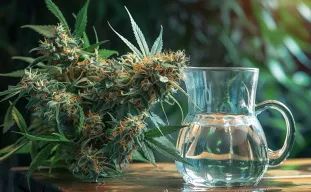 Grow TechniquesWhat Does Flushing Mean and When Should You Do It?You have fed, trained, and nurtured your plants for months.
The buds are fat, pistils are turning, and you can almost ta...
Grow TechniquesWhat Does Flushing Mean and When Should You Do It?You have fed, trained, and nurtured your plants for months.
The buds are fat, pistils are turning, and you can almost ta...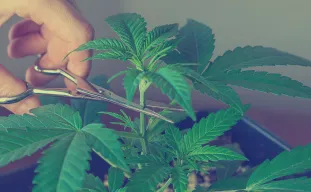 Grow TechniquesGuide to Topping and Pruning Indica Cannabis for Maximum Yield and PotencyIf your indica cannabis plants are getting bigger than your quarantine beard, it's time to take care of them yourself. T...
Grow TechniquesGuide to Topping and Pruning Indica Cannabis for Maximum Yield and PotencyIf your indica cannabis plants are getting bigger than your quarantine beard, it's time to take care of them yourself. T...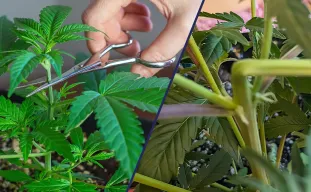 Grow TechniquesSuper Cropping vs. Topping: Which Technique Delivers Higher Cannabis Yields?Consider this: You are in your lush grow room, where you can see your healthy cannabis plants. You can't stop thinking a...
Grow TechniquesSuper Cropping vs. Topping: Which Technique Delivers Higher Cannabis Yields?Consider this: You are in your lush grow room, where you can see your healthy cannabis plants. You can't stop thinking a...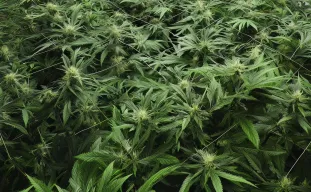 Grow TechniquesHow to Use Sea of Green Technique to Maximize Your Fast-Flowering Cannabis YieldWant to get every last gram out of your fast-flowering cannabis strains? Say hello to the Sea of Green (SOG) method, whi...
Grow TechniquesHow to Use Sea of Green Technique to Maximize Your Fast-Flowering Cannabis YieldWant to get every last gram out of your fast-flowering cannabis strains? Say hello to the Sea of Green (SOG) method, whi...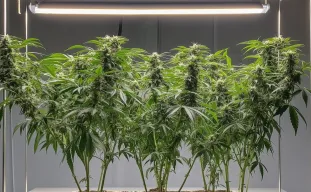 Grow TechniquesHow to Apply Mainlining Technique to Autoflower Cannabis PlantsAlright, fellow growers, today we're diving into a slightly controversial subject: mainlining autoflowers. Yeah, I can a...
Grow TechniquesHow to Apply Mainlining Technique to Autoflower Cannabis PlantsAlright, fellow growers, today we're diving into a slightly controversial subject: mainlining autoflowers. Yeah, I can a...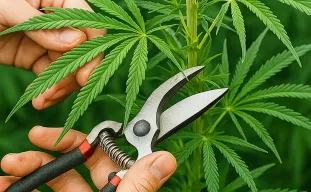 Grow TechniquesDefoliation Techniques for Feminized Cannabis: Boost Airflow & Yield QualityGrowing cannabis isn’t about being perfect, it's about being bloody effective. If you're growing feminized cannabi...
Grow TechniquesDefoliation Techniques for Feminized Cannabis: Boost Airflow & Yield QualityGrowing cannabis isn’t about being perfect, it's about being bloody effective. If you're growing feminized cannabi...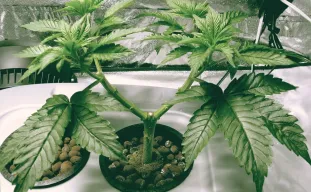 Grow TechniquesGuide: Mainlining Weed Plants (manifold cannabis)Whether you are new to cannabis growing or have experience, you probably have considered mainlining. You might not know ...
Grow TechniquesGuide: Mainlining Weed Plants (manifold cannabis)Whether you are new to cannabis growing or have experience, you probably have considered mainlining. You might not know ...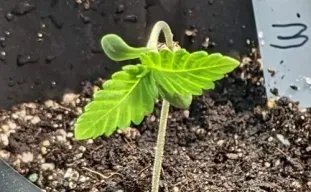 Grow TechniquesThe Best Soil to Use for Autoflower PlantsI've been growing cannabis for years, and in that time, I've witnessed firsthand the rise of autoflowering strains. Thes...
Grow TechniquesThe Best Soil to Use for Autoflower PlantsI've been growing cannabis for years, and in that time, I've witnessed firsthand the rise of autoflowering strains. Thes...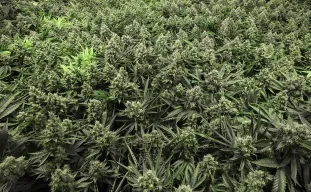 Grow TechniquesSea of Green method (SOG) - The Ultimate GuideAs growing weed gradually moved from outdoor to indoor cultivation, growers quickly came to the conclusion that placing ...
Grow TechniquesSea of Green method (SOG) - The Ultimate GuideAs growing weed gradually moved from outdoor to indoor cultivation, growers quickly came to the conclusion that placing ...WeedSeedsExpress Blog
Get yourself informed on all topics related to cannabis seeds and growing!



